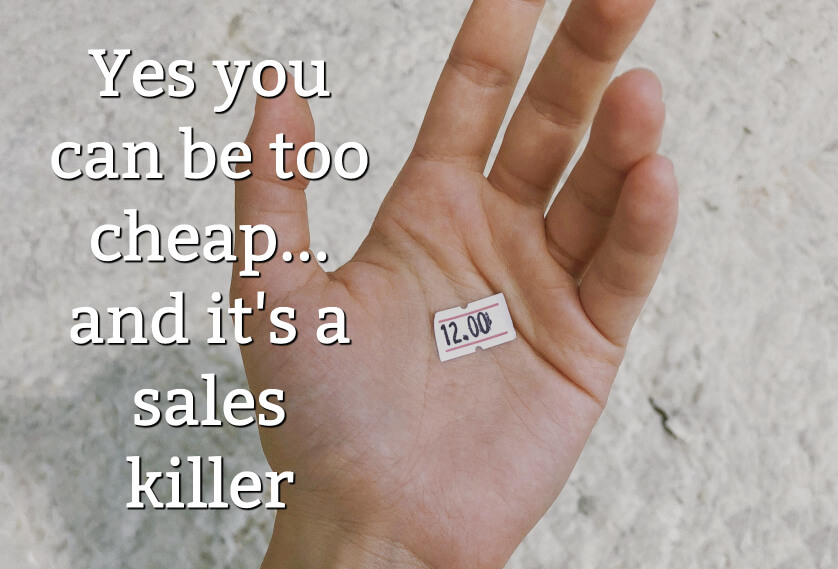For 2 years now, I’ve had my lawns mowed and gardens maintained by a local gardener called Gary.
It’s not that I’m lazy. It’s just I have a reasonably big garden and like it to look nice. But I prefer spending quality time with my wife and daughter than mowing and weeding.
I’d rather give the money to someone else to save the time. That’s a rich mindset, compared to a poor mindset where you give up time to save money. There’s plenty of money in the world and only a finite amount of time… which do you value more?
Anyway, Gary has just turned up whenever it suits him, and sends me a bill whenever his cash runs out! That’s worked quite well. Until last month. When I realised the garden still hadn’t been tidied up from the winter.
I texted Gary. Called him. But nothing. No sign of him. I hope he’s OK. In the meantime, there’s the pressing problem of my garden. Which is increasingly looking like a jungle and stifling my ability to invite friends and their kids round to play in the garden.
Hiring a gardener is like hiring a decorator, or builder. It’s a headache. There are lots of them around but the quality can vary widely. Those who are good quickly get busy, which then drives their customer service and quality levels to drop. It’s a common problem for all businesses, not just MSPs.
I spoke to a couple of gardeners I found on Google, and eventually settled on a lady I’d had a very pleasant chat with. Let’s call her Janice (although her real name is Cath).
I described the work, what I wanted to be done, and the flexibility on offer. She came up with a few new ideas (tut tut Gary) and asked if I’d be willing to pay a monthly fee, even through winter. Absolutely! A more predictable cash flow for everyone.
To give an accurate quote, Janice asked to come and look at the garden. We arranged a time and I left a business meeting early to make sure I was home on time.
You know what happened next, don’t you? She didn’t show. I rang her after an hour, but nothing.
The next day, I rang her again. “Oh yeah, sorry, something came up,” Janice said. Note that I had to ring her, rather than her chase me.
We rearranged the visit and I arranged to stay at home with my daughter on Friday afternoon just gone. After two hours waiting, I gave up and we went out for tea.
I’m not expecting Janice to call me again. If she does, she’ll be getting a lecture about wasting my time. And about missed opportunities – one of the things I wanted to discuss with her was offering her services at a discount to my tenants in my small property portfolio.
It never ceases to amaze me how so many people struggle with the basics in business. Janice clearly wanted the work, based on the phone call we had. Yet she didn’t turn up to collect it. She wasn’t even in a competitive situation – so long as her quote was reasonable, and I liked her, she would have got the work.
Having my garden just sorted without having to think about it, is worth more to me than the cash to make that happen.
Key lessons from this that you can apply to your IT support business
It’s not so much about what you do, as the way that you do it: There are lots of people around who provide the exact same services as you do. Your future clients will pick you because of the way you behave, not because of what you do. Uneducated buyers (the majority of your clients) don’t know how to tell a good MSP from a bad one, meaning they can’t make cognitive decisions. So they make emotional decisions. Emotional decisions are based on behaviour and communication. I once worked with an MSP where the business development guy didn’t call back prospects in a timely manner. Unsurprisingly they were struggling to win new clients. Because at an emotional level there’s a perception that if the sales guy is slow, then the support team will be worse!
Price is a factor, not the factor: Fewer people buy on price alone, than you think. Quality and reliability are often more important. So stop fretting about whether you’re too expensive. In reality, you’re probably not expensive enough. High price is related to quality in most people’s minds. Those who don’t want to pay a good price are unlikely to be good clients, anyway.
Search for the people who are willing to give cash to save time: A few years back it would never have occurred to me to get my garden done by someone else. Then I started to make good money from my business, and begrudged spending my valuable spare time cleaning and gardening. It’s become backed into my mindset now to hire other people to do the things I’m not good at, or just don’t want to do. There are plenty of other people out there just like me.
It’s communication that builds (and destroys) trust: Trust is the most valuable commodity in business. It’s the hardest thing to win and the easiest to lose. It sounds extreme when I write these words, but I will never trust Janice now. She let me down twice. No amount of deals, social proof or apologies can make up for sloppy communication. Two one minute phone calls – or even a text – before each missed appointment could have actually built my trust in her. We all know life gets in the way of things we’re trying to achieve. It’s the way you deal with those things that affects the results you get.






